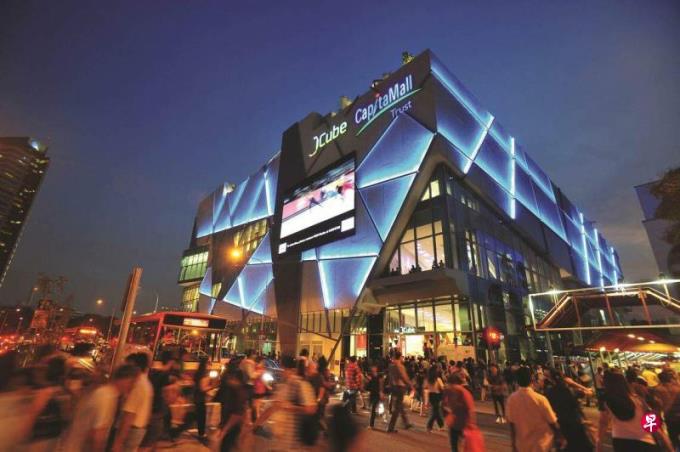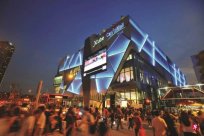
Re -examine our position is crucial.What should I stay?What should I demolish?Can some key parts in the neighbor be retained during reconstruction?Who will decide?What guarantee measures can be taken to ensure that all sounds are respectful, even those who may not be able to make a sound?
Whenever someone regrets or questioned any reconstruction plan, we always hear the same carefully modified speech: Singapore is an island country, which means that we must take into account the needs of the country on a limited land, and then we must take into account the needs of the country, and then we must take into account the needs of the country.Must make difficult choices.
The last example is the Peace Center that is scheduled to be demolished this year.The people who are familiar with this mall are sad to say goodbye to it.Similar to this situation, the recent announcement of a new indoor venue will replace the Singapore indoor gymnasium, which has caused people to worry about this iconic building that may be demolished, although the official has not confirmed that the Singapore indoor gymnasium will really be demolished.
Remove old buildings can move out a lot of good reasons.Re -development can make limited land more intensive use.Old buildings with a lifetime of use are close to the end, and more frequent and expensive maintenance projects must be carried out.Replacing aging buildings with new buildings with more resources and systems can also reduce Singapore's resource footprints.
In addition, the pattern of old buildings may not be perfected, and it cannot meet the changing population structure and economic needs of Singapore.For these reasons, it is important to be able to transform and update existing buildings. This is why the rental deeds of houses sold in houses and commercial land are 99 years, sometimes even shorter.After the land deeds expire, the land will be returned to the country and resale to ensure that the urban landscape is constantly updated.
Living in Singapore today, bidding farewell to various buildings is common.However, rapid reconstruction will bring huge costs, especially the demolished buildings are not old.A recent analysis of local real estate information website Stacked Homes concluded that most residential projects in Singapore will develop after 19 to 24 years, which accounts for a small part of the life of the building.
Quick reconstruction is not limited to the residential field.Even relatively new commercial buildings will be demolished, such as JCUBE, which is only 11 years old.
Some people criticize Singapore's rapid renovation of buildings and waste resources, and believe that this runs counter to Singapore's promise of reducing carbon emissions.
For others, the reconstruction of the city brings emotional loss.They talked about various communities dissipated with the demolition of the building.They remember the memories built in public spaces and corridors, and have a misplace because of strange buildings that have sprung up in the place where they are familiar.Some people even feel helpless, do not know when the next demolition will happen and where will it happen, and they do not know how to protest with these changes.
However, the fact is that we may have no choice.The deeds of the entire house area expire almost at the same time, which means that a wave of reconstruction is coming.We can see a glimpse of the reconstruction of the entire Tanglin Halt group based on the selective overall reconstruction plan.Although the Housing Board has worked hard to resettle the residents nearby to retain a sense of belonging to the region and communities, people who have lived in Dongling Fuxu for many years and must be relocated during the interview, they revealed a deep sense of loss and distress.
Therefore, re -examining our position is essential.What should I stay?What should I demolish?Can some key parts in the neighbor be retained during reconstruction?Who will decide?What guarantee measures can be taken to ensure that all sounds are respectful, even those who may not be able to make a sound?
In addition to historical protection
Policy makers and citizens often take the protection of heritage as a means of misplace caused by reducing the rapid changes in cities.
In the 2023 Congress debate, Ying Lanni, the Minister of the Prime Minister's Office and the Ministry of Finance and the Second Minister of the Ministry of Finance, said: "Although we cannot protect every ancient building, we still hope to stroll on the streets.I can feel the sense of familiarity and connection. Today, as a key part of urban planning, we have carefully considered how to protect the building heritage./P>
Her words clearly show that protection is the main way to maintain the connection between Singaporeans and the building environment.
However, although the planned demolition buildings are of great significance to the community they serve, they often fail to meet the high standards of protected buildings.In 1993, the Urban Reconstruction Bureau and the Preservation of MonumentsEssence
The first is artistic value, which is evaluated based on the quality of the building.Followed by historical value, this requires architecture to be associated with historical figures or events.The third is social value, that is, whether it contains the characteristics of the focus of emotional focus on the entire country or a certain ethnic group.The fourth is technical value, that is, the rareness and quality of architectural technology used at construction.
After this definition, a neighborhood school hidden in the group area, even if he has profound personal value for previous students or nearby residents, can it be evaluated as aesthetic, historical, social, or technical value?
Who's voice can be heard?
In improper management of inheritance, it may exacerbate social inequality.
The protected building is a rare and expensive asset, and has proven to increase the real estate value of nearby development projects.This impact on real estate prices may in turn may trigger the middle class of neighbors, and residents with poor economic conditions are forced to relocate.
Groups with richer resources and wider connections are also more likely to lobby to protect buildings.We have seen how alumni of Singapore Women's School and the United States and the United States and the United States of the United States actively contact the official to protect the old school buildings and achieve varying degrees of success.
In contrast, schools with small fame, even the old school buildings of the schools with relatively long history of architecture, such as New Town Primary School and Guangwei Middle School (New Town Secondary School), are not.It was demolished without strong opposition.So, whose memory is more likely to be preserved?Who will benefit from this protection?
Heritage protection is important, but in view of its inherent limitations, it is necessary to reflect on Singapore's development priority matters and processes.
Protect the disadvantaged people
When re -discuss the method of updating the city (including the necessity of demolition and reconstruction), we need to listen to the opinions of those who are most likely to be affected.
In view of the aging population in Singapore, each time we re -develop a space, we need to consider the impact of relocation on elderly residents.The elderly particularly attached to their neighbors, because they may face the challenges of action and cognition to reduce their travel scope.Compared with the younger generation, these challenges also make them rely more on the familiar landmarks and facilities to recognize the way and meet their daily needs.
We can imagine the negative impact of rapidly changing urban landscapes on the social, physiological, emotional, and cognitive ability of Singapore's elderly.thisIn addition, over time, the reduction of family units can be said to increase the importance of community connection as a support mechanism.What else can people rely on if we cannot protect the local community?
Therefore, it is important to understand which key parts of the neighborhoods need to be retained by understanding the key parts of the neighborhoods (especially the elderly).Can we slow down and rebuild these critical parts to protect the history and identity of individuals or local communities as possible?
Is it more tolerant and involved in neighborhood planning practices, can it help Chinese people, especially those vulnerable people in the society, and feel that they can control their own environment?Stronger energy, in turn helps people to better cope with other inevitable pressure brought about by urban changes.
If it is not alleviated, as the ground deeds expire, the planned demolition and reconstruction in batches in the next few decades will likely cause a huge impact.The priority is to find a way to ease this impact.The promotion of a new plan such as Voluntary Early Redevelopment Scheme (VERS), which aims to decentralize the speed of reconstruction, is a bold but may cause controversy.Because VERS's details are still being formulated, the priority of re -development of Singapore, especially on how to fairly distribute the social costs and benefits of urban renewal, and the timing of a wider collective consultation seems to be mature.
As we enter the unknown field, the government and citizens must work together to achieve a new balance through negotiation.
The author is assistant professor of the School of Public Policy, the National University of Singapore.
Originally carried the Strait Times
Golden Shun Translation




